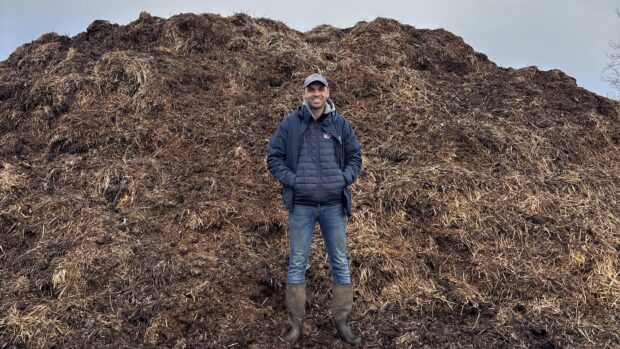A Dorset yard owner’s dispute with her local water company over use of hosepipes around horses has uncovered longstanding but little understood legislation that could cost the equestrian world millions.
Gillian Makey-Harfield, a List Three British Dressage judge, had no idea she was breaking the law by using hosepipes directly from the water mains at her private four-horse yard until she was inspected by Wessex Water Ltd on 7 July.
She contacted Horse & Hound after being issued with a contravention report telling her to switch to a water storage cistern by 15 August or remove hosepipe fittings.
“These regulations could put so many other people’s livelihoods at risk and affect the horse world as we know it,” she said.
According to DEFRA and the Water Regulations Advisory Scheme (WRAS), using hosepipes from the mains exposes public drinking water to potential contamination from animal waste due to “backflow”.
Backflow can occur when the main water supply comes under high demand, for example due to a fire, burst main or mass use of garden hosepipes, resulting in a loss of pressure and suction action on the system. Contamination may happen if the end of a hosepipe is in contact with fluid containing animal waste (faecal matter) at the exact moment the water system experiences a loss of pressure.
Makey-Harfield felt she was being unfairly singled out, given that hosepipes at neighbouring equestrian properties, including the Cattistock hunt kennels, had gone undetected. Now seeking legal advice and willing to take her fight to court, she said her situation set a dangerous precedent across the industry.
Her fears were shared by Cattistock huntsman Charlie Watts, who said the kennels, housing 100 hounds and 12 horses, could be next.
“It does make me feel very uneasy because we would be classified as a high risk, too,” he said. “It’s just another step further down the road towards the nanny state.”
The issue at a glance
- Water Supply (Water Fittings) Regulations 1999 — place use of hosepipes at even the smallest stables under the highest public water contamination risk category (Fluid Category 5)
- A serious risk of contamination may require the immediate disconnection of the water supply
- Every water user must comply with regulations and could be prosecuted if non-compliance results in contamination of the public water system
- Magistrates courts can impose maximum fines in the region of £1,000, with more serious cases directed to crown courts involving unlimited fines and possibly imprisonment
The cost of complying
WRAS manager Dr Stephen Tuckwell provided two ways to comply with regulations:
- Installation of a storage cistern (with a float valve to provide a suitable air gap) and booster pump to increase water pressure
- Cost depends on the size of a stable set-up and pressure required. Cisterns range from £55.13 for a medium 40 gallon size to £444.79 for a commercial 175 gallon capacity. Pumps, meanwhile, retail from £160.40 to £345
- Using a gantry or robust pipe clip to keep hosepipe “constrained” or permanently held off the ground when fully extended (no closer than 4-5in to the ground). In this case, hosepipes should also be fitted with double check valves, which retail at around £3.20 (15mm hosepipe) or £3.89 (22mm hosepipe). (Labour costs would be extra).
- For more information contact WRAS on (tel: 01495 248454)
or visit www.wras.co.uk - Read this news story in full in the current issue of Horse & Hound (11 August, ’05)

 Get up to 19 issues FREE
Get up to 19 issues FREE
 UK’s No1 weekly for Horses for Sale
UK’s No1 weekly for Horses for Sale
 Latest results and reports
Latest results and reports
 TO SUBSCRIBE CLICK HERE
TO SUBSCRIBE CLICK HERE





